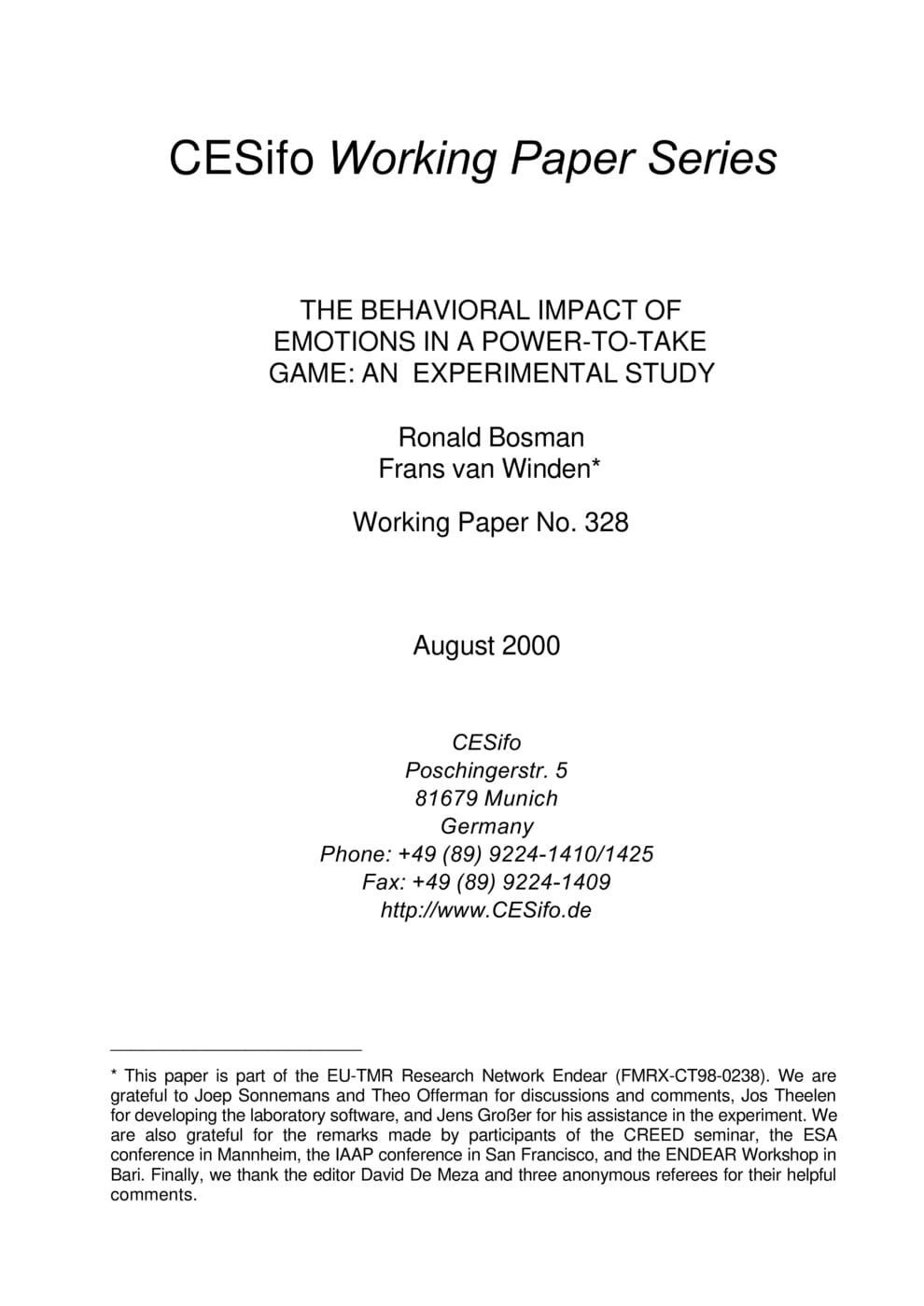The Behavioral Impact of Emotions in a Power-to-Take Game: An Experimental Study
CESifo, Munich, 2000
CESifo Working Paper No. 328

The power-to-take game is a simple two player game where players are randomly divided into pairs consisting of a take authority and responder. Both players in each pair have earned an income in an individual real effort decision-making experiment preceding the take game. The game consists of two stages. In the first stage, the take authority decides how much of the earned income of the responder that is left after the second stage will be transferred to the take authority (the so-called take rate). In the second stage, the responder can punish the take authority by destroying (part of) his or her earned income. In this experimental study, we are primarily interested in how emotions influence responder behavior. Our findings are the following. (1) A higher take rate significantly increases the intensity of irritation, contempt, and envy, and significantly decreases the intensity of joy and happiness. Since negative emotions are experienced as painful, there is direct hedonic impact. (2) Irritation and contempt drive punishment behavior. (3) There are discontinuous "jumps" in the behavior of responders. They either choose no punishment (destroy nothing) or the highest level of punishment (destroy everything). (4) Expectations have a significant effect on the probability of punishment but not on the intensity of experienced emotion. This last result is explained in terms of norm-related regulation of emotions.